
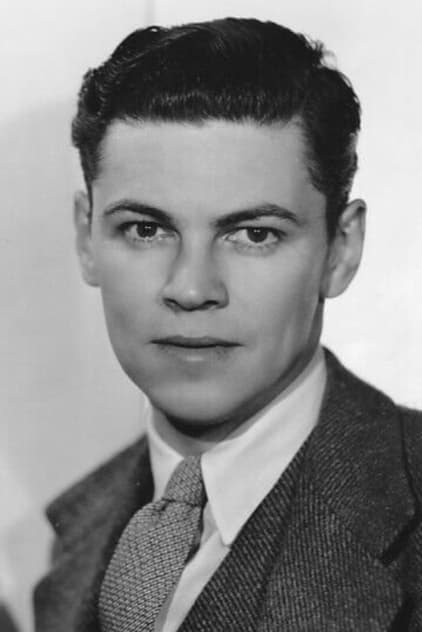
Albert Hackett
Born: February 14, 1900
Died: March 16, 1995
in Nutley, New Jersey, USA
Died: March 16, 1995
in Nutley, New Jersey, USA
From Wikipedia, the free encyclopedia
Albert Maurice Hackett (February 16, 1900 – March 16, 1995) was an American dramatist and screenwriter most noted for his collaborations with his partner and wife Frances Goodrich.
Hackett was born in New York City, the son of actress Florence Hackett (née Hart) and Maurice Hackett. Not long after marrying screenwriter Frances Goodrich, the couple went to Hollywood in the late 1920s to write the screenplay for their stage success Up Pops the Devil for Paramount Pictures. In 1933 they signed a contract with MGM and remained with them until 1939. Among their earliest assignments was writing the screenplay for The Thin Man (1934). They were encouraged by the director W. S. Van Dyke to use the writing of Dashiell Hammett as a basis only, and to concentrate on providing witty exchanges for the principal characters, Nick and Nora Charles (played by William Powell and Myrna Loy). The resulting film was one of the major hits of the year, and the script, considered to show a modern relationship in a realistic manner for the first time, was considered to be groundbreaking. However this is only because it was written and released before the enactment of the Hollywood Production Code, which strictly censored movies from mid-1934 until the early 1960s (see Pre-Code). The other Nick and Nora films show a steep decline regarding the "groundbreaking maturity" of the Charleses' marriage.
The Hacketts received Academy Award for Screenplay nominations for The Thin Man, After the Thin Man (1936), Father of the Bride (1950) and Seven Brides for Seven Brothers (1955).[1] They won Writers Guild of America awards for Easter Parade (1949), Father's Little Dividend (1951), Seven Brides for Seven Brothers (1954), and The Diary of Anne Frank (1959), as well as nominations for In the Good Old Summertime (1949), Father of the Bride (1950) and The Long, Long Trailer (1954). They also won a Pulitzer Prize for Drama and the New York Drama Critics Circle award for their original play The Diary of Anne Frank. Some of their other films include: Another Thin Man (1939) and It's a Wonderful Life (1946).
Albert Maurice Hackett (February 16, 1900 – March 16, 1995) was an American dramatist and screenwriter most noted for his collaborations with his partner and wife Frances Goodrich.
Hackett was born in New York City, the son of actress Florence Hackett (née Hart) and Maurice Hackett. Not long after marrying screenwriter Frances Goodrich, the couple went to Hollywood in the late 1920s to write the screenplay for their stage success Up Pops the Devil for Paramount Pictures. In 1933 they signed a contract with MGM and remained with them until 1939. Among their earliest assignments was writing the screenplay for The Thin Man (1934). They were encouraged by the director W. S. Van Dyke to use the writing of Dashiell Hammett as a basis only, and to concentrate on providing witty exchanges for the principal characters, Nick and Nora Charles (played by William Powell and Myrna Loy). The resulting film was one of the major hits of the year, and the script, considered to show a modern relationship in a realistic manner for the first time, was considered to be groundbreaking. However this is only because it was written and released before the enactment of the Hollywood Production Code, which strictly censored movies from mid-1934 until the early 1960s (see Pre-Code). The other Nick and Nora films show a steep decline regarding the "groundbreaking maturity" of the Charleses' marriage.
The Hacketts received Academy Award for Screenplay nominations for The Thin Man, After the Thin Man (1936), Father of the Bride (1950) and Seven Brides for Seven Brothers (1955).[1] They won Writers Guild of America awards for Easter Parade (1949), Father's Little Dividend (1951), Seven Brides for Seven Brothers (1954), and The Diary of Anne Frank (1959), as well as nominations for In the Good Old Summertime (1949), Father of the Bride (1950) and The Long, Long Trailer (1954). They also won a Pulitzer Prize for Drama and the New York Drama Critics Circle award for their original play The Diary of Anne Frank. Some of their other films include: Another Thin Man (1939) and It's a Wonderful Life (1946).
Movies for Albert Hackett...
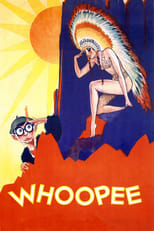
Title: Whoopee!
Character: Chester Underwood
Released: September 26, 1930
Type: Movie
Western sheriff Bob Wells is preparing to marry Sally Morgan; she loves part-Indian Wanenis, whose race is an obstacle. Sally flees the wedding with hypochondriac Henry Williams, who thinks he's just giving her a ride; but she left a note saying they've eloped! Chasing them are jilted Bob, Henry's nurse Mary (who's been trying to seduce him) and others.

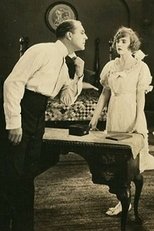
Title: A Woman's Woman
Character: Kenneth Plummer
Released: September 24, 1922
Type: Movie
A woman finds herself being a unpaid skivvy to her husband, two daughters and her son.

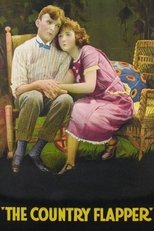
Title: The Country Flapper
Character: Hopp Jumpp
Released: July 29, 1922
Type: Movie
Country girl Jolanda has lost her boyfriend, Nathaniel Huggins, to a "flapper" from the city. Jolanda blackmails Nathaniel's father into giving his permission for he and Jolanda to be married--but circumstances arise that may make Jolanda rethink her position.

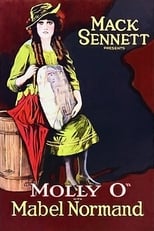
Title: Molly O'
Character: Billy O'Dair
Released: November 19, 1921
Type: Movie
An Irish washerwoman's daughter falls in love with one of America's most eligible bachelors, much to the dismay of the girl's parents -- and the young doctor's newly acquired fiancée! Events come to a head at the charity masked ball, which the two girls happen to attend in very similar costumes, thanks to the largesse of Molly's benevolent "fairy godfather"...

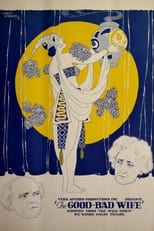
Title: The Good-Bad Wife
Character: Leigh Carter
Released: October 1, 1920
Type: Movie
William Carter, a young Virginian in Paris, becomes enchanted with music hall dancer Fanchon La Fare. After William reluctantly returns to America, Fanchon follows him, and when she is threatened with deportation because of an irregularity in her passport, William marries her. The marriage causes consternation in the upright Carter family, which is compounded when Fanchon performs one of her dances at a church benefit. At the conclusion of her dance, Fanchon sees a stranger in the audience and faints. Later, the same man appears at the Carter residence and demands to see her. Leigh Carter, William's younger brother, becomes angered and shoots the man. At the trial, Fanchon confesses that the stranger was her estranged husband whom she had been forced to marry when she was but a child. The crime thus clarified, Leigh is freed, and Fanchon, who had been expelled earlier from the Carter house, is welcomed back by her husband and his family. (Courtesy TCM)


Title: Away Goes Prudence
Character: Jimmie Ryan
Released: July 1, 1920
Type: Movie
Prudence, a young society woman and aviatrix, is forbidden to continue flying by her fiancé Hewitt and her father. In defiance, she stages her own kidnapping, but Hewitt discovers the ruse and arranges a real abduction to teach her a lesson. His plan backfires, and the kidnappers rob him and capture Prudence. In order to save herself, Prudence pretends to join the gang.


Title: Anne of Green Gables
Character: Robert
Released: November 23, 1919
Type: Movie
Anne Shirley, an orphan, is taken into the lives of a generous farmer and his sister. She grows from an adventuresome young lass into a charming and much sought-after young lady.


Title: Just Pretending
Character: Albert Mills - the Little Boy
Released: July 5, 1912
Type: Movie
Little Albert Mills, eight years old, reads in the paper the accounts of the abduction of children and holding them for ransom. He conceives the idea of playing the game on his little sister, Henrietta. He writes a note reading, "I have your children. Put four thousand dollars under the stone on front porch and I will bring them back. They are now hanging by the hair. Blue Beard." He then tells Henrietta to look the other way, and he takes her dolls out of the doll buggy and hides them in the garden. Then he places the note in the rural delivery mailbox at the front gate. A little later a young fellow brings an auto up to the gate and the children plead for a ride. After a little hesitancy he consents and the children are carried away to the park. Mrs. Mills misses the children and finds the note in the mail box. She takes the matter seriously, and gathering a lot of neighbors and a policeman, gives chase to the auto.
